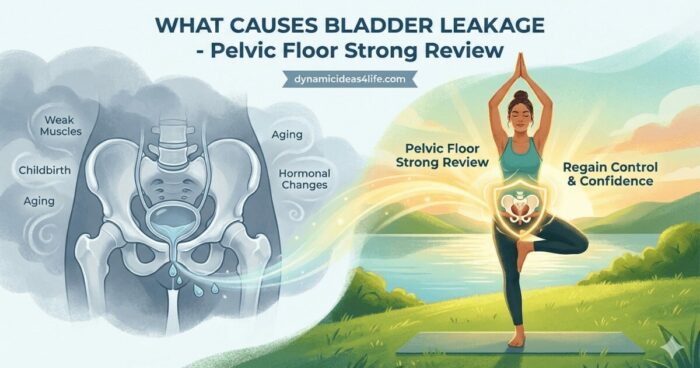
How Low Stomach Acid Impacts Digestive Health is a topic that does NOT always get the attention it REALLY should. With an Unappreciated YET Crucial role in our overall well-being this is something that is essential for maintaining an Optimally Functional Healthy Body.
Often overlooked, the balance of Our Stomach Acid is a finely tuned process – It is a delicate dance between on one side providing the required acidity to break down food and absorb nutrients, and on the other it can cause inflammation or damage to our stomach lining if our pH balance is too high.
So In layman’s terms we must maintain a level of stomach acidity that is of course not too high but still not too low. This article explores the significantly under-researched and oft-misunderstood topic of Low Stomach Acid, aka. Hypochlorhydria, delving into the possible health impacts;
From Digestive Issues to Nutrient Deficiency and beyond. Whether due to natural ageing, persistent stress, or long-term medication, Hypochlorhydria is a condition that everyone should be acquainted with, for its potential to silently disrupt normal life when it becomes a problem.
So let’s explore this further…
How Low Stomach Acid Impacts Digestive Health

Understanding Low Stomach Acid
Low Stomach Acid (Hypochlorhydria) is a condition where the stomach doesn’t produce enough of its key gastric juice – Hydrochloric acid (HCL). This bottom-of-the-stomach acid is responsible for the early stages of food digestion, breaking down proteins, supporting nutrient absorption, and providing an inhospitable environment for ingested bacteria and other pathogens.
Symptoms of Low Stomach Acid Explained
The symptoms of Low Stomach Acid often mimic those of High Stomach Acid, leading to potential misdiagnosis. They can include dyspeptic symptoms such as bloating, undigested food in stools, acid reflux, and unexplained nausea.
Other signs may be more unexpected and due to decreased nutrient absorption causing vitamin and mineral deficiencies. Examples Include brittle nails, hair loss, unexplained fatigue, or even complications like Iron-deficiency anaemia, osteoporosis, and autoimmune disorders.
Causes of Low Stomach Acid
Aging is one of the most common causes of Low Stomach Acid, as gastric acid production may naturally decrease with age. Chronic stress is another common culprit because it has a direct, suppressive effect on stomach acid production.
Long-term use of medications, especially proton pump inhibitors (PPIs), also deplete stomach acid over time. PPIs are routinely used to treat acid reflux and ulcers, and function by inhibiting the mechanisms that secrete stomach acid.
Low Stomach Acid and Health
The impacts of Low Stomach Acid on health can be extensive due to the crucial role stomach acid plays in general digestion and nutrient absorption. Without sufficient stomach acid, the body may struggle to break down and absorb key nutrients such as Protein, Calcium, Iron, and Vitamin B12, among others.
These nutrients are vital for the maintenance and function of various body systems, meaning a deficiency can cause a cascade of health problems.
- Protein is essential for the body’s structural and metabolic functions, while
- Calcium is critical for the health of bones and teeth.
- Iron is key in the creation of red blood cells, and a deficiency can trigger anaemia.
- Vitamin B12 is needed for nerve health, DNA production, and more.
So, inadequate absorption of these nutrients due to low stomach acid can have far-reaching effects on your health.
Addressing Low Stomach Acid To Improve Digestive Health Issues
In cases of Hypochlorhydria, lifestyle changes can often boost stomach acid production. These include stress reduction practices, dietary modifications with a focus on whole, unprocessed foods, and potentially the incorporation of supplemental digestive aids such as Betaine HCL or digestive enzymes.
However, laboratory testing for Low Stomach Acid can confirm a diagnosis, and consultations with a healthcare provider can lead to personalised, effective treatment plans.
This approach is specifically important to resolve any potential underlying conditions and to protect against the risk of malnutrition from impaired nutrient absorption.
It’s imperative to remember that maintaining correct levels of stomach acid is pivotal for proper digestion and nutrient absorption, both essential to our overall health and well-being.
The Link Between Hypochlorhydria and Digestive Problems
Understanding the Importance of Stomach Acid
Stomach acid, otherwise known as gastric acid, is a critical component in our digestive system. It’s instrumental in breaking down our food, triggering enzymes to digest proteins and facilitating the absorption of vital nutrients such as Calcium, Magnesium, and vitamin B12.
Furthermore, stomach acid is responsible for the elimination of bacteria and viruses within the stomach, this plays a significant part in maintaining the overall health of our gut.
Low Stomach Acid and Digestive Health
When stomach acid levels are low, termed Hypochlorhydria, these important digestive processes struggle to occur effectively. A lack of stomach acid can cause numerous digestive problems. These include;
- Bloating, where the stomach feels uncomfortably full;
- Gas, which can be both uncomfortable and embarrassing; and
- Indigestion, an uncomfortable feeling of fullness, pain, or burning in the upper abdomen.
Moreover, a significant lack of stomach acid can lead to food not being broken down correctly, causing malabsorption of nutrients. This itself can lead to deficiencies in essential vitamins and minerals. Low Stomach Acid can also increase the risk of bacterial overgrowth and infection, as our natural defences are compromised.
Heartburn and Low Stomach Acid
Heartburn, described as a burning sensation in the chest just behind the breastbone, is another common complaint associated with low stomach acid. The common assumption is that heartburn is caused by excess stomach acid, hence antacids are often administered as a remedy.
However, really heartburn can often be a symptom of Low rather than High Stomach Acid.
Low Stomach Acid means the food in the stomach isn’t being broken down as it should be. Consequently, pressure builds up in the stomach as the food ferment, causing the stomach content, including the minimal acid present, to reflux up into the oesophagus, leading to the typical burning sensation associated with heartburn.
Importance of Appropriate Diagnosis
Misdiagnosis or lack of diagnosis of Low Stomach Acid can lead to long-term problems. Prolonged mismanagement, such as treating heartburn with antacids, can exacerbate the problem, further reducing gastric acid and hindering digestion.
The consequences of this could include malnutrition due to the inability to absorb necessary nutrients from food, compromised immunity, and an increased risk of gastrointestinal (GI) infections.
The impact of Low Stomach Acid on our well-being can be significant. This is because stomach acid contributes to numerous bodily functions and its deficiency could result in an array of digestive issues.
For this reason, understanding the crucial role of stomach acid in our overall health is therefore vital, and, if a lack of stomach acid is suspected, it becomes important to seek an accurate diagnosis and the right treatment.
Connection Between Low Stomach Acid and Nutrient Deficiency
The Consequences of Low Stomach Acid on the Absorption of Nutrients
Stomach Acid, also referred to as gastric acid, plays an indispensable role during digestion. This integral substance, primarily made up of Hydrochloric Acid (HCL), aids in the breaking down of the food we eat into smaller particles that are easier for the body to handle.
Crucially, stomach acid serves to eliminate the harmful bacteria and parasites that may exist in our food. It further triggers the activation of pepsinogen, a digestive enzyme key to converting protein into essential nutrients.
Nutrient Deficiencies as a Result of Low Stomach Acid
For the body to effectively absorb essential nutrients, the stomach needs to maintain an adequately acidic environment. Low acidity levels can result in the inadequate absorption of critical minerals such as Iron, Calcium, and Magnesium, and Vitamins like B12.
Iron Deficiency, propagated by inability to absorb Iron, can lead to anaemia – a condition marked by fatigue and weakness due to a lack of healthy red blood cells, which are charged with the responsibility of carrying oxygen around the body.
Difficulty absorbing calcium in the stomach, as a result of low acid, can result in Osteoporosis – characterised by brittle and fragile bones caused by an imbalance in bone creation and dissolution.
A reduction in stomach acid may also have an effect on Vitamin B12 absorption, as this vitamin is typically separated from protein by stomach acid before absorption.
Without sufficient stomach acid, B12 may not be adequately absorbed, leading to a deficiency that can manifest in symptoms such as weakness, fatigue, and nerve problems.
Other possible consequences of Low Stomach Acid include protein-related deficiencies, often reflected in weak nails, hair loss, and skin problems, as protein is a primary building block for these.
Similarly, decreased absorption of Magnesium can lead to irregular heartbeat, muscle cramps, and even neurological disorders.
Understanding the Health Effects of Low Stomach Acid
Low Stomach Acid, medically known as Hypochlorhydria, has profound consequences on an individual’s well-being, extending beyond mere nutrient deficiencies. One of the primary outcomes of Low Stomach Acid is an increased risk of bacterial overgrowth in the small Intestine (SIBO), resulting in disruptive symptoms such as bloating, gas and abdominal discomfort.
Crucially, stomach acid plays an integral role in our immune system, annihilating pathogens that could otherwise induce disease.
Consequently, low levels of stomach acid could potentially increase our vulnerability to various illnesses.
Should one observe symptoms suggestive of Low Stomach Acid, it is of the utmost importance to seek medical guidance. Neglecting such symptoms could culminate in long-term health problems.
Although supplements and dietary modifications can alleviate some symptoms, it is imperative to obtain a medical professional’s advice for an accurate diagnosis and appropriate treatment.
Possible Links with Other Health Conditions
Exploring the Potential Correlation Between Low Stomach Acid and Osteoporosis
Life-changing conditions such as Osteoporosis, which weakens bones making them fragile, could potentially have a connection with Low Stomach Acid. This is because it is essential for absorbing vital vitamins and minerals, including Calcium, and an inadequacy of Stomach Acid could compromise Calcium absorption, leading us down the path to conditions like Osteoporosis.
According to a 2008 research study published by the Journal of the American College of Nutrition, individuals diagnosed with Hypochlorhydria demonstrated notably diminished levels of Calcium Absorption in comparison to those with a normal pH balance.
Connection of Hypochlorhydria with Autoimmune Disorders
Autoimmune disorders such as rheumatoid arthritis, lupus, and Hashimoto’s thyroiditis have been associated with Low Stomach Acid. It is theorised that inadequate stomach acid compromises the immune system by allowing pathogens to enter the gut and proliferate, leading to inflammation and potential onset of autoimmune disorders.
It’s also suggested that the body may turn against itself in an abnormal immune response, attacking the cells responsible for producing stomach acid.
A 2013 study by the Department of Rheumatology at Yeouido St. Mary’s Hospital in Seoul, South Korea, showed an increased prevalence of gastric acidity-related conditions, like gastritis and gastric ulcers, in patients with rheumatoid arthritis, suggesting a possible link between hypochlorhydria and autoimmune disorders.
Low Stomach Acid and Skin Problems
The link between Low Stomach Acid and skin problems such as acne, eczema, and rosacea has been subject to ongoing debate among researchers. One theory is that stomach acid helps in maintaining a healthy gut flora, crucial for skin health.
With Low Stomach Acid, bad bacteria can thrive, leading to dysbiosis, an imbalance of good and bad bacteria in the gut. This can result in inflammation that may manifest as skin issues.
A 2008 study in the Journal of Dermatological Science found that rosacea patients showed an increased prevalence of gastric acidity-related conditions like gastritis, suggesting a potential link between low stomach acid and skin problems.
Understanding the Effects of Low Stomach Acid on Health
It’s important to mention that more comprehensive research is required before we can positively confirm the association between Low Stomach Acid and numerous health complications.
Meanwhile, it’s suggested that we adhere to a well-rounded diet, stay properly hydrated, and handle stress adequately to uphold healthy stomach acid levels.
Before starting any treatment such as betaine HCL or digestive enzyme supplements to boost stomach acid levels, it is strongly recommended to seek counsel from a healthcare professional, as these supplements may not be suitable for everyone.
While Hypochlorhydria may not directly cause other conditions, understanding these potential links can contribute to better patient care and healthier overall outcomes.
It’s crucial to remember that our body operates as an interconnected system. Thus, a problem in one part can lead to issues elsewhere, and maintaining conducive health is pivotal to enhancing digestive health, among other things.
Diagnosis and Treatment of Low Stomach Acid
Identifying Low Stomach Acid
Recognising Low Stomach Acid, or Hypochlorhydria, typically commences with an appointment with a general practitioner (GP) or a gastroenterologist. Symptoms can vary, ranging from bloating, indigestion and belching to heartburn and food allergies.
These indicators could suggest other digestive disorders too, thereby making the diagnosis complex.
One standard procedure for measuring stomach acid levels, thereby helping diagnose Hypochlorhydria, is the Heidelberg Stomach Acid test. This test involves swallowing a small capsule tethered to a long string, which helps gauge the pH levels of the stomach.
However, due to its invasive nature and potential discomfort, this may not be the most comfortable option for everyone.
Alternatively, a blood test can be used to check gastrin levels in the body, a hormone that regulates the production of gastric acid.
If gastrin levels are unusually high, it could potentially point towards Hypochlorhydria.
Medical Treatments for Low Stomach Acid
The medical treatment for Hypochlorhydria primarily focuses on addressing the underlying cause. Treatment could range from changes in medication (when Hypochlorhydria is related to certain drug usage) to treating chronic infections if they are the cause of low stomach acid.
Another common medicinal treatment includes supplementation with Hydrochloric Acid (HCL). HCL Supplements are typically recommended by health care providers to make up for the low natural production of stomach acid.
They help in improving digestion and nutrient absorption. However, It is crucial to use HCL supplements under professional guidance as taking them randomly can damage the stomach lining and lead to ulcers.
Natural Remedies for Low Stomach Acid
Beyond medical treatments, there are natural remedies believed to help manage the condition. For Instance, one such popular method is the use of Apple Cider Vinegar. Two tablespoons of the vinegar, mixed with a bit of water, taken before meals, may help in raising the stomach’s pH level and enhancing digestion.
Another remedy is the consumption of bitter herbs, such as dandelion or gentian. These herbs are thought to stimulate the stomach’s acid production.
Plus, Ginger Tea, too, is known to boost stomach acid levels.
Digestive enzymes, available as supplements, enhance our body’s digestive process, breaking down the food into simpler absorbable forms, thus compensating for the lack of enough stomach acid.
Probiotics also play a crucial role in maintaining gut health and could prove beneficial in managing Hypochlorhydria.
Lifestyle changes, such as eating smaller, more frequent meals, chewing food thoroughly, and avoiding certain triggering foods may also serve beneficial.
In Conclusion
This discourse on Low Stomach Acid is not merely academic, but relevant, in the context of exponential rises in lifestyle diseases and digestive disorders prevalent in today’s society.
Understanding the mechanics of our stomach and the importance of maintaining an optimal level of stomach acid could be the first step in preventing disorders like indigestion, nutrient deficiency, osteoporosis, or even more serious ones.
Diagnosing and treating Hypochlorhydria does not have to be a daunting prospect. A combination of medical advice and natural remedies, together with awareness, could be the key to managing this condition successfully and preserving our health.
Remember, our bodies are intricately interrelated systems, and even seemingly inconsequential elements like stomach acid can have profound effects on our wellness.






Anxiety and Depression BiOptimizers blood pressure supplements blood sugar control blood sugar support supplements cognitive function digestive enzymes digital products Dr Sam Robbins Exercise Gut Health Gut Health While Travelling Health Tips for Travelling Healthy Living heart health HFL how to lower blood sugar levels How To Lower Cholesterol insulin resistance joint health supplement keto dieting Keto Diet Weight Loss leaky gut supplements list Magnesium deficiency Matt Gallant mental health multivitamins Nootopia Nootropics Probiotics Probiotic Supplements proteolytic enzymes reverse type 2 diabetes stress and anxiety stress relief Supplements vitabalance vitapost Wade Lightheart weight loss articles weight loss diet plans weight loss product reviews weight loss supplements weight loss tea




